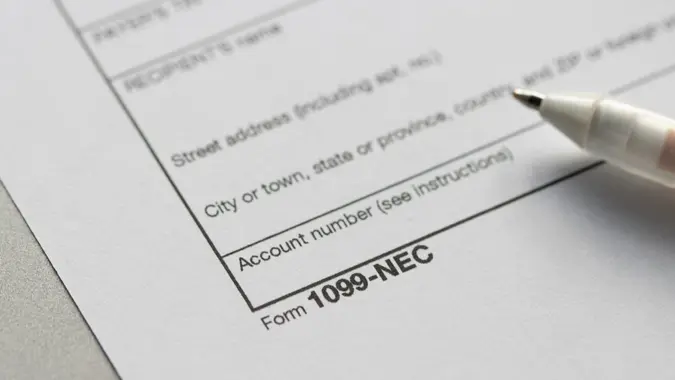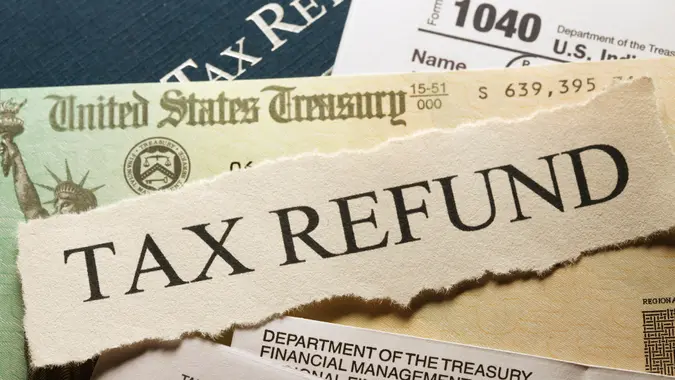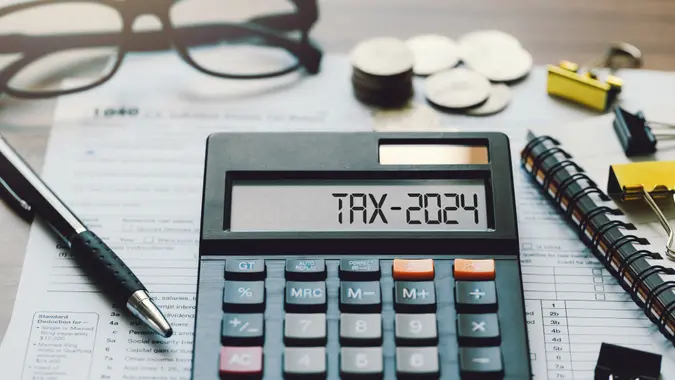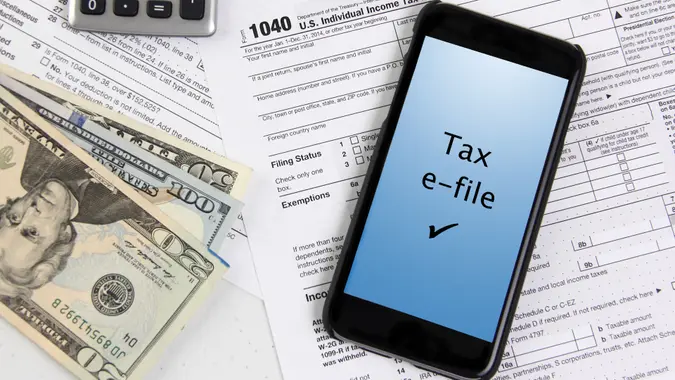Missed Adding a 1099 to Your Tax Return? Here’s What Could Happen if You Don’t Fix It

Commitment to Our Readers
GOBankingRates' editorial team is committed to bringing you unbiased reviews and information. We use data-driven methodologies to evaluate financial products and services - our reviews and ratings are not influenced by advertisers. You can read more about our editorial guidelines and our products and services review methodology.

20 Years
Helping You Live Richer

Reviewed
by Experts

Trusted by
Millions of Readers
One of the challenges facing gig workers is keeping up with different sources of income during the year — and remembering to pay taxes on all of them. Whether you’re a small business owner, independent contractor or someone with a bunch of side hustles, you might have dozens of different payees sending you 1099 forms during tax season.
That doesn’t even include 1099 income earned on interest from savings accounts, cancelled debt, and other sources. All of these income sources need to be reported on your tax return. Even if you didn’t receive a Form 1099 on income you earned, you still need to report the income. Failing to do so could cost you a lot of money in penalties and late fees.
As noted on the Intuit TurboTax website, there are many different kinds of 1099 forms (and dozens of situations that might call for one). The one thing they all have in common is that they cover payments you receive that are potentially taxable. Because the 1099 you receive is also reported to the IRS, the tax agency knows about your income — even if you forget to include it on your return.
If the IRS finds that you owe additional tax on your unreported 1099 income, it will usually notify you and retroactively charge you penalties and interest beginning on the first day they think that you owed additional tax, according to Intuit TurboTax.
You can usually expect the IRS to charge a late payment penalty of 0.5% per month for as long as late taxes are unpaid. But if the 1099 income you forget to include on your return results in a substantial understatement of your tax bill, the penalty increases to 20%, which accrues immediately.
A substantial understatement applies if the tax on income you didn’t include on your return exceeds the greater of $5,000 or 10% of the correct tax required to be shown on your return. The penalty is capped at 25%.
Payers have until Jan. 31 to send you a 1099, so you should receive them by early February, according to the IRS. If you haven’t received an expected 1099 by then, contact the payer. If haven’t received one by mid-February, contact the IRS.
Keep in mind that you are still responsible for reporting 1099 income whether you receive the form or not. That’s why it’s a good idea to keep a running log of all 1099 income throughout the tax year. In some cases you can also find 1099 income on bank statements or payment platforms.
More From GOBankingRates
 Written by
Written by  Edited by
Edited by 

























